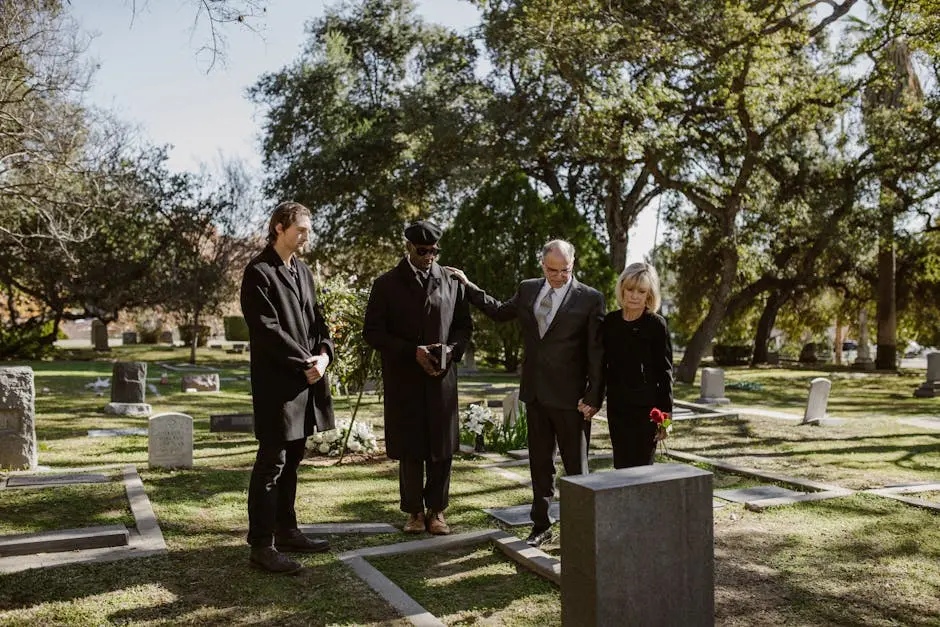How Do I Become a Certified Funeral Celebrant?
Becoming a certified funeral celebrant can be a meaningful way to support individuals during one of life's most challenging moments. Whether you're drawn to this role because of personal experiences or a calling to help others, understanding the steps to become certified can set you on the right path. Let's explore the journey to becoming a certified funeral celebrant in a friendly and straightforward way.
Understand the Role of a Funeral Celebrant
Before starting your training, it's important to understand what a funeral celebrant does. A celebrant leads funerals and memorial ceremonies, crafting personalized services that reflect the lives of the deceased and the needs of the grieving family.
The role of a funeral celebrant is much more than just conducting ceremonies. It involves deep empathy and care, ensuring that each service is meaningful and respectful. Celebrants often work closely with families to understand their wishes and the unique aspects of the deceased's life. This helps in delivering a service that honors their memory uniquely. Many families seek out celebrants who can provide non-religious or spiritually neutral ceremonies, focusing on celebrating the life lived rather than religious traditions.
Research Funeral Celebrant Training Programs
There are various training programs available that offer certification for funeral celebrants. Research these programs to find one that fits your schedule, budget, and learning style.
When researching programs, it's beneficial to look for those that offer hands-on experience and comprehensive coursework. Some programs might be more intensive, providing a deep dive into the intricacies of ceremony creation, while others might offer a broader overview. Consider whether you want online coursework, which provides flexibility, or in-person learning, which can offer direct mentorship and community engagement.
Also, evaluate the reputation of the training institution and the qualifications of the instructors. Reading reviews from past trainees can also provide insights into the program's effectiveness and supportiveness, guiding you to make an informed decision.
Enroll in a Training Program
Once you've chosen a program, enroll and commit to learning the core skills needed to become a successful celebrant. This usually includes learning about ceremony structure, public speaking, and supporting bereaved families.
Enrollment is a commitment to your future role as a celebrant. Most programs offer modules in communication skills, where you'll learn the art of listening and speaking effectively, both crucial for understanding family needs and conducting ceremonies. You might also engage in practical assignments, such as crafting ceremonial scripts and practicing public speaking in a supportive environment.
Throughout your training, you'll gain insights into the multicultural and diverse approaches to funeral services, preparing you for any scenario you might encounter. This can be particularly important in modern societies where cultural diversity means that a one-size-fits-all approach is rarely appropriate.
Complete the Certification Requirements
Certification often requires completing coursework and demonstrating your skills through practical assessments. This might include creating and delivering a ceremony as part of your evaluation.
Practical assessments are designed to ensure that you can confidently handle real-life situations. These usually involve role-playing exercises, writing ceremonial content, and managing unexpected situations that might arise during a service. Passing these assessments demonstrates your capability to perform under pressure while maintaining the dignity and respect that the occasion requires.
Start Working as a Funeral Celebrant
After obtaining your certification, you can begin offering your services to families and funeral homes. Building your network and gaining experience will be key factors in your success.
It's essential to establish connections with local funeral homes and related businesses. Networking helps you not only find employment opportunities but also gain valuable insights into client expectations and industry trends. Many celebrants start by offering volunteer services to build their portfolio, which can also provide opportunities to receive mentorship from more experienced celebrants.
Over time, your experience and reputation will grow, distinguishing you in your field. This reputation is crucial in a profession where personal recommendations often dictate success. Being part of professional celebrant associations can also provide additional credibility and resources.
Your Journey to Becoming a Certified Funeral Celebrant
Embarking on the journey to becoming a certified funeral celebrant is both fulfilling and impactful. By following these steps, you can gain the knowledge and skills needed to guide families through their time of need, offering comfort and creating memorable ceremonies. Remember, your compassion and dedication are what truly make a difference.


